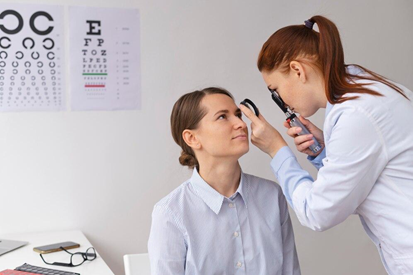
Eye Health
Eye care is a vital but often overlooked part of overall wellness. Our eyes are constantly exposed to digital screens, making them vulnerable to strain, discomfort, and vision issues. Prioritizing eye health means scheduling regular check-ups, recognizing early warning signs, and adopting healthy habits like managing screen time and wearing protective eyewear to preserve our vision and support long-term health.
Importance Of Regular Eye Examinations
Regular eye examinations are essential for maintaining optimal eye health, according to the eye doctor at EyesNY. They help detect issues that may not show immediate symptoms, allowing for early intervention before problems escalate. Eye exams can also reveal signs of broader health conditions like diabetes and hypertension, offering the opportunity for timely treatment. Age should not determine how often we schedule eye exams—routine check-ups, regardless of age, ensure any changes in vision or eye health are caught early, leading to better long-term outcomes.
Common Eye Health Issues And Their Impact
Many people face eye health issues at some point in their lives. Common problems like myopia, hyperopia, and astigmatism are easily corrected but can still disrupt daily life if left untreated. More serious conditions like cataracts, glaucoma, and macular degeneration—often related to aging—can lead to vision loss without proper care. Recognizing symptoms early ensures timely treatment. Poor vision doesn’t just cause discomfort; it can affect daily tasks, work, and driving safety. Managing eye health improves not only vision but also overall quality of life.
The Role Of Your Eye Doctor In Eye Health
Your eye doctor plays a crucial role in maintaining your eye health. With their expertise, they diagnose and treat eye conditions, providing personalized care to ensure your vision stays clear. Beyond thorough exams, they educate on preventive measures, such as protecting your eyes from UV rays and blue light, and offer lifestyle advice to promote better eye health. Staying current with the latest advancements in eye care, eye doctors ensure you receive the most effective and up-to-date treatments.
How To Choose The Right Eye Doctor
Selecting the right eye doctor is key to receiving quality care. First, determine whether you need an optometrist or an ophthalmologist based on your eye health needs. Look for a professional with a solid reputation and positive patient reviews, and consider recommendations from family and friends who make you feel comfortable and listen to your concerns. Accessibility is also crucial—ensure the practice’s location and hours are convenient, and verify that they accept your insurance. You can find an eye doctor who meets your needs and supports your eye health.
What To Expect During An Eye Exam
Understanding what to expect during an eye exam can help ease any anxiety. The visit typically starts with a review of your medical history and vision concerns. The eye doctor will perform tests like a visual acuity check, refraction assessment, and eye muscle test. They may also use a slit lamp and dilation to examine the internal structures of your eyes. After the exam, the doctor will explain the results, recommend treatments, and answer your questions, ensuring you understand your eye health.
Preventative Eye Care Tips
Preventive care is key to maintaining long-term eye health. Simple habits can reduce the risk of problems. The 20-20-20 rule—looking at something 20 feet away for 20 seconds every 20 minutes—helps ease digital eye strain. Wearing sunglasses with 100% UV protection shields eyes from harmful rays, and a diet rich in omega-3s, zinc, and vitamins C and E supports eye function. Staying well-rested and hydrated also helps maintain moisture and reduce fatigue. These daily practices can go a long way in protecting your vision.
Advances In Eye Health Technology
The field of eye health has experienced significant technological advancements that have greatly enhanced the diagnosis and treatment of various conditions. Innovations such as CT scans and MRI scans provide high-resolution imaging, enabling early detection of glaucoma and macular degeneration. Laser-assisted cataract surgery has increased precision and efficiency, resulting in shorter recovery times and better outcomes. Vision correction has also evolved, with options ranging from advanced contact lenses to LASIK surgery, offering patients more personalized solutions. Embracing these advancements
Eye Health Myths And Facts
Many myths about eye health can be confusing. Reading in dim light may lead to eye strain, but it doesn’t cause lasting damage. Using computers won’t ruin your eyesight either, though extended screen time can lead to discomfort, so take breaks. While carrots are good for your eyes due to vitamin A, leafy greens and omega-3-rich fish offer even more benefits. Knowing the facts helps us make better choices for our vision.
Conclusion: Prioritizing Your Eye Health
In conclusion, eye health plays a vital role in our overall well-being. By keeping up with regular eye exams, choosing a trusted eye doctor, and following simple preventative care tips, we can protect our vision for the long term. Understanding what to expect during exams and staying informed about technological advancements helps us make smart, proactive choices. As we clear up common myths and commit to better eye care, we give our eyes the attention they deserve, ensuring they remain strong and healthy throughout our lives.




